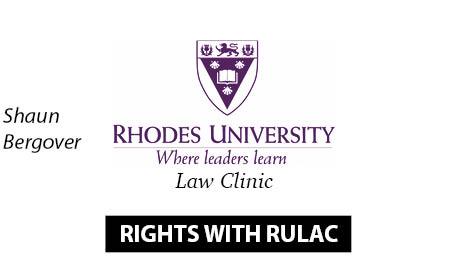By Shaun Bergover
When a person dies without leaving a Will, that person is said to have died intestate.
When a person dies intestate, the assets and property of that person are distributed in terms of the Intestate Succession Act 81 of 1987 (“the Act”). In other words, the Act will determine who inherits what. Should you die intestate, only certain people, called beneficiaries, can inherit from your estate. The following persons qualify as beneficiaries:
The deceased’s:
- Legal spouse
- Biological or adopted children
- Blood relatives
Not all of the above will necessarily inherit. Exactly who will inherit in terms of the rules of intestate succession will depend upon the facts of each case.
It is possible for a person to die wholly intestate or only partly intestate. An example of the latter is where a testator specially bequeaths one portion of his estate in a valid Will, but does not deal with the rest of his or her assets in the Will. In this instance the portion that has been bequeathed by Will will devolve in terms of and subject to any conditions contained in the Will, while the rest of the estate will devolve according to the rules of intestate succession.
HOW WILL AN INTESTATE ESTATE BE DISTRIBUTED?
A deceased’s estate consists of both assets (property, money, furniture, etc) and liabilities (debts). If the deceased was married in community of property, one half of the joint estate will devolve upon his/her spouse, and the other half of the joint estate will devolve in terms of the laws of intestate succession.
If, however, the deceased died out of community of property subject to the accrual system, the surviving spouse has the option of lodging a claim against the deceased’s estate for his/her share in the accrual.
Once the surviving spouse has received his/her half share in the joint estate, or alternatively his/her share in terms of the accrual system, the debts of the deceased must be paid. Once all the debts of the deceased estate have been paid, then the residue of the deceased’s estate can be distributed.
NOTE:
All the children of a deceased person are entitled to inherit. It makes no difference whether they were born of a civil marriage, a customary marriage, were adopted, or were born out of wedlock.
CUSTOMARY LAW
Customary Unions
The law of succession can raise a number of issues when a couple is married in terms of customary law. The validity of the customary union comes into question, and it is important to consider and decide this prior to the estate being devolved. There are many forms of customary unions in South Africa as there are various cultures in the country.
RECOGNITION OF CUSTOMARY MARRIAGES ACT 120 OF 1998
Customary unions entered into after 15 November 2000 are governed by this Act. In order for a union to be a valid customary union, it must comply with the requirements stipulated in the Act. Once these requirements are met, a certificate of registration is issued. The requirements are contained in the Act.
HINDU AND MUSLIM MARRIAGES
A marriage entered into according to Hindu or Muslim religious rites is also considered a valid customary union according to our law. The spouse in such a union is entitled to inherit in accordance with the Intestate Succession Act. Such marriages are generally considered to be out of community of property.
PERMANENT AND SAME SEX PARTNERSHIPS
When two people register their union as a permanent same sex partnership in accordance with the Civil Unions Act 17 of 2006, they are regarded as spouses for the purposes of intestate succession. The important element is to register the union. A union that has not been registered will result in the two people being unable to claim the rights of someone who is regarded as a spouse.
When the union is made valid through registration, the partners to that union may claim maintenance against their deceased partner’s estate in terms of the Maintenance of Surviving Spouses Act.
PRIMOGENITURE RULE
Primogeniture refers to the customary practise in terms of which only the male line in a family is entitled to inherit. The practise limited the rights of the wives and daughters in the estate of the deceased and only recognises the potential male heirs. The wife of the deceased was often the one most disadvantaged as her home would be inherited by her son/s or brother-in-law.
The Constitution with its principles based on equality made it possible to change this rule with its resultant unfair discrimination against women and children.
CHANGES BROUGHT BY THE BHE JUDGMENT
The Bhe case was a challenge to the constitutional validity of section 23 of the Black Administration of Deceased Estates Act 38 of 1927. It also challenged the principles behind primogeniture and whether it had a place under the Constitution of South Africa. This case concerned two girls – aged nine and two – from Khayelitsha who challenged the rule that in the absence of a Will stipulating that the girls inherit their deceased father’s estate, they could not inherit property on the grounds that they were female. The Constitutional Court confirmed that South African customary rules relating to intestate succession are unconstitutional and discriminatory.
The Constitutional Court found that the rule of male primogeniture as it applies in customary law to the inheritance of property is declared to be inconsistent with the Constitution and invalid to the extent that it excludes or hinders women and extra-marital children from inheriting property. The result is that the primogeniture rule is no longer applicable in South Africa, and females have the same right to inherit as males when customary law is applicable.


